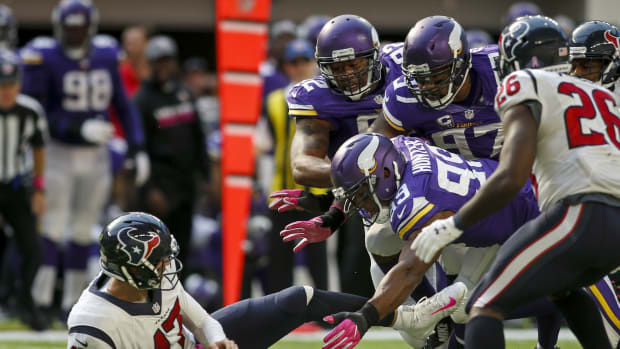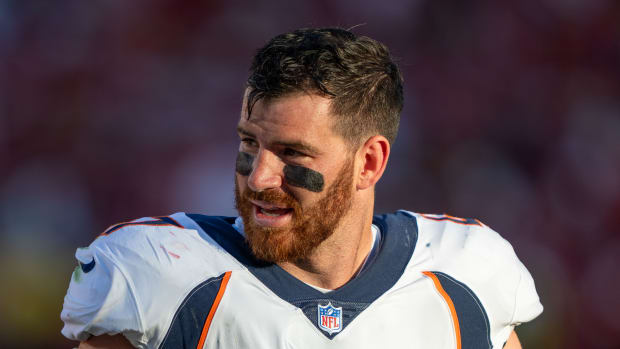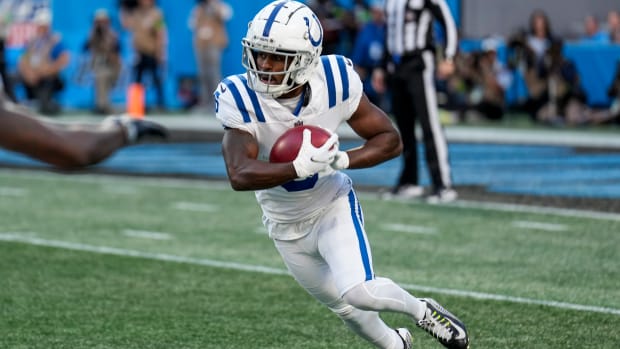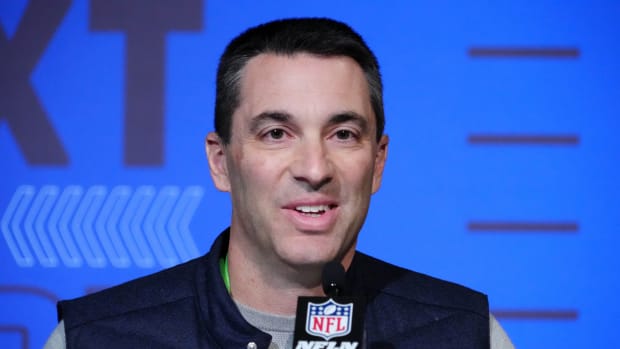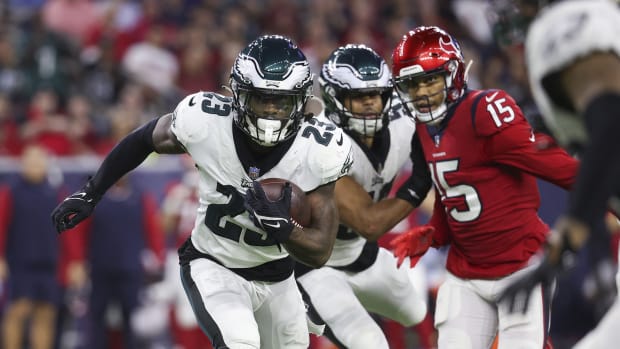Playing Football in 2020 Would Mean Prioritizing Financial Interests Over Health and Safety
Early on in our now four-months-and-counting national health crisis, Dr. Anthony Fauci was asked the question on everyone’s mind: “How long do we have to do this?” He answered: “We don’t make the timeline; the virus makes the timeline.”
Intellectually knowing this to be true is one thing. Accepting it as a reality for the months ahead is much harder. Despite the sound advice of Dr. Fauci and so many others, our collective will has ebbed, and some businesses will not submit to being disrupted. The NFL is a clear example of this.
Full speed ahead
As I have noted often, the NFL has had the advantage of time compared to other sports, with a front row seat to “Sports in 2020 Amid Covid-19.” The league now observes Major League Baseball’s contentious negotiations with its players, taking notes for inevitable discussions ahead with the NFLPA. It can now watch and learn from the “bubble” concepts of the NBA, NHL and MLS, and evaluate best practices for the three “T’s”—testing, treatment and tracing. And it can watch and learn how other leagues deal with players who want to “opt out,” whether due to health concerns or the larger current crisis of social unrest.
Blessed with this luxury of time, the NFL has operated as if the 2020 season was never in doubt. The league and the NFLPA executed a new 11-year CBA as the pandemic percolated, free agency and trades ensued as the country shut down, the virtual draft brought relief to a sports-starved populace and the 2020 schedule release included only minor contingencies in case of an interruption. While the rest of the sports business world contemplates games without fans, the NFL has—to this point—not even admitted the likelihood of a reduced fan base. And other than a Zoom offseason for players and coaches, there has been no apparent disruption to the NFL business, a stark contrast to the sports world at large.
As the league conducts business as usual, there are concerns. Even with players staying away from team facilities (the NFLPA has now told players not to organize even for workouts), there have been identified cases of COVID-19 including Von Miller, Kareem Jackson, Ezekiel Elliot and several other unidentified players. Positive cases, whether symptomatic or not, are inevitable, and as of this writing there are COVID spikes in Florida, Arizona, California and Texas, areas that encompass nine NFL teams. And the venerable Dr. Fauci, much to the chagrin of the NFL and NFLPA medical advisors (and the Tweeter in Chief), has suggested that the NFL, like the NBA, operate in a “bubble” atmosphere to avoid spread of the infection. I am sure NFL owners read that and said—to no one in particular—“Stay out of our business Fauci!”
This question, however, needs to be asked: Is the NFL placing economic interests ahead of the health and safety of its players?
Playing through
In March the entire sports world shut down based on one positive test (Utah Jazz All-Star Rudy Gobert). Now, with hundreds of positive tests among athletes in college and professional sports—and no vaccine on the horizon—all sports are starting up again. Let that sink in.
And, it seems, NO league—the NFL included—is planning to suspend operations upon positive player tests. They will “play through,” mitigating, as best they can, with detailed protocols about quarantining and testing. Can this realistically work?
NFL players will not live in a “bubble.” There will be daily interactions with family, friends and others beyond the team facility. And no matter the detail of protocols for social distancing in weight rooms, locker rooms, meeting rooms, etc., NFL (and college) football players have to, well, practice and play football, a sport that requires the opposite of social distancing. Virtually every football play ends with one player applying extreme face-to-face, body-to-body pressure to bring another to the ground. The acts of blocking and tackling would seem to involve a lot of “droplet exchange.” As to masks within the helmets? Please.
There are a couple of other things I find concerning. On a conference call with agents last week (yes, I am a certified NFL agent), NFLPA Medical Director Thom Mayer discussed the disproportionate impact of the virus on African-Americans, those with high body-mass indices and sleep apnea, which, he said, describes many NFL players. Also, I read that Von Miller needed 17 days after “recovering” from the virus to resume workouts and was still suffering some lingering windedness. I found these things to be alarming as, I think, the NFL should as well.
Optimal health or business disruption?
So, you ask: “Andrew, are you suggesting that the NFL shouldn’t play?”
Well, if the goal of the powers that be in the NFL is optimal health and safety, they should not play. But we just need to be honest here; sports are big businesses that the stewards are trying to protect, and there is no bigger business in sports than the NFL.
I, perhaps more than anyone in NFL media, am aware of the business and economic reverberations of shutting down a $15 billion business. I also lived in Green Bay, Wisc. for a decade, and can tell you: A fall with no NFL weekends would be devastating financially and psychologically. So yes, I get it: There is an economic side to playing that is powerful, even with a limited number of fans or no fans at all.
But let’s be honest here: If the NFL plays—and I expect that it will—it will be about the business of football being prioritized over optimizing the health and safety of its employees. If the latter were the league’s top priority, as it has stated for years regarding concussion protocols and now COVID, they would not play. COVID-19 is a virulent pathogen that is highly transmissible through close contact and there is no vaccine on the horizon.
Economics matters; I get that. I just think we all—the league, its players, media, fans— need to be adults, be honest about it and understand it. Playing football in 2020 prioritizes mitigation of economic risk over mitigation of health risk.
And speaking of mitigating health risk …
Waivers and opt-outs
As plans are made to play through this pandemic, I am told that team executives are having the discussion of waivers with the NFL Management Council. Specifically, teams are concerned that by not operating in a bubble, player interactions with at-risk individuals may cause liability issues.
Waivers are now becoming common for college football programs to present players, with an innuendo of “sign this or you cannot play.” Could that happen to professional players with a union protecting them? We shall see.
Conversely, I have, for months now, had NFL players reach out to me asking about if they can “opt out” and if they would be paid if they did? My answer: I don’t know. The NBA is now dealing with this question and Commissioner Adam Silver, in an ESPN interview last week, seemed to indicate he would be receptive, but nothing was certain. And, of course, there will be lawyers.
One way to handle potential opt-outs would be treating it similarly to Therapeutic Use Exemptions (TUEs) that allow NFL players to take Adderall or other substances. TUEs are granted once a player’s condition is thoroughly vetted by a specialist and team doctor, essentially giving the player a “doctor’s note” not to play due to his own underlying condition or, in present circumstances, one of a close family member.
Stay tuned …
As with the leagues now girding for resumption, the NFL will have reams of health and safety protocols to operate through a continuing pandemic. But all the protocols in the world don’t answer how to practice and play a game that is inherently violent and diametrically opposed to socially distancing.
As of this writing, the NFL has decided it can mitigate the health risk enough to prevent a massive disruption of its business. But in doing so, it is prioritizing business over optimal health. And it, and we, should be honest and admit that; we’re all adults here.
The business of sports always wins.
• Question or comment? Email us.
































